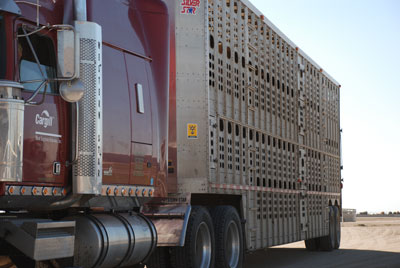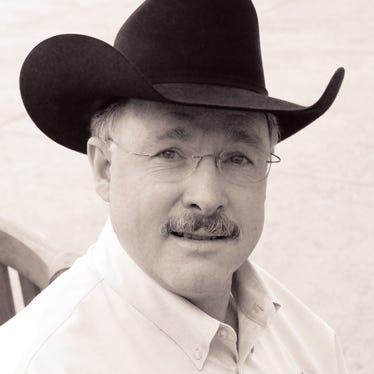Cattle Transport Training & Certification
The training, in English and Spanish, was developed to provide training in properly moving cattle up to and on to the trailer, distributing cattle correctly on the trailer, hauling techniques that reduce cattle stress, and handling emergency situations.
April 18, 2011

Depending on your situation, your cattle hauler likely occupies a position somewhere between trusted ally and the reason Maalox was invented. If your experiences trend toward the latter, you might ask haulers if they’ve been trained and certified through the Cattle Transporter Training Program (CTTP).
This is an on-line training program funded by the beef checkoff’s National Beef Quality Assurance program (NBQA). The training, in English and Spanish, was developed to provide training in properly moving cattle up to and on to the trailer, distributing cattle correctly on the trailer, hauling techniques that reduce cattle stress, and handling emergency situations. The online training modules were developed from previous training videos also funded by the checkoff: “NBQA Guide for Cattle Transporters” and “Master Cattle Transport” video.
“The Master Cattle Transporter (MCT) program was developed as guidelines and suggestions for an industry that is full of variables including how different cattle handle, trailer types and state regulations,” says Ken Real, Real Cattle and Trucking. “But, there is one common goal that we all share and that is striving to achieve good cattle-handling practices. We want to create a positive public perception of the industry, and the MCT program is one way to start communication from ranch to rail and help each other improve our cattle handling and safety.”
The online training and certification program is available at www.animalcaretraining.org through the Animal Care Training Program, which also provides other training to producers, veterinarians and livestock market employees.
“By completing MCT online training through the Animal Care Training Program, transporters educate themselves and ensure proper cattle handling throughout all segments of the beef industry,” says Dan Thomson, DVM, Jones professor of production medicine and epidemiology and director of the Beef Cattle Institute at Kansas State University (KSU). “The modules focus on truck and trailer maintenance, handling, loading and unloading, biosecurity and weather. Animals are transported every day, and the safety of those people handling the cattle and the safety of the cattle is of upmost importance to our industry.”
The online training modules make it possible for producers and their employees to take the training at their convenience. Thomson adds that training employees is essential for worker safety, employee retention, and the production of wholesome products. When a training package is complete, a certificate of completion is made available for printing.
“Completing the MCT online modules is one way to prove transporters are committed to being the best at what they do,” says Dell King, a BQA Advisory Board member and order buyer from Hopkinsville, KY. “It’s an extra step that shows people they care about doing the right thing.”
About the Author(s)
You May Also Like





